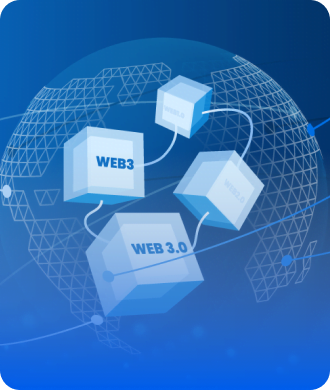
Artificial intelligence (AI) is transforming how companies are run by providing creative ways to improve productivity, decision-making, and customer experiences. In today’s fast-paced business environment, using AI to your advantage can provide you with an important competitive edge. This article examines how AI can be used most effectively in corporate transformation, underlining how it affects numerous areas of operations.
Understanding AI and Prompt Engineering
Artificial Intelligence: The term artificial intelligence (AI) represents the replication of human intelligence in devices created to have human-like thoughts and learning processes. It includes a range of technologies, such as robotics, machine learning, and natural language processing, that allow machines to carry out tasks that generally require human intelligence.
Prompt Engineering: Prompt engineering is the process of generating inputs, or prompts, that direct AI models to generate desired results. It is essential for improving AI applications for particular business requirements, guaranteeing precision and adaptability in AI-driven solutions.
AI in Business Operations
Streamlining Processes: AI enhances productivity and reduces human error by automating repetitive processes. AI-driven chatbots, respond to consumer queries, freeing up human efforts.
Better Decision-Making: AI examines huge amounts of data to offer suggestions and insights that help managers make informed decisions. Anticipate consumer behavior and market trends with the assistance of predictive analytics.
AI for Customer Experience
Modification of Consumer Interactions: AI modifies consumer interactions according to every individual’s preferences and behaviors. Customized suggestions and specific targeted advertising strategies increase customer satisfaction and engagement.
AI-Driven Customer Support: AI-driven chatbots and virtual assistants offer round-the-clock customer service, quickly and efficiently resolving issues. These bots can effectively understand and reply to client demands by using natural language processing.
AI in Marketing and Sales
Targeted Marketing Campaigns: AI analyzes customer data to identify trends and preferences, enabling businesses to create highly targeted marketing campaigns that resonate with their audience.
Sales Predictions and Lead Scoring: AI predicts sales trends and scores leads based on their likelihood to convert, helping sales teams prioritize efforts and close deals more effectively.
AI in Human Resources
Recruitment and Talent Acquisition: Artificial Intelligence (AI) maximizes the hiring process by determining the most qualified individuals for a position based on candidate evaluation, resume screening, and employment performance.
Employee Engagement and Retention: HR can put plans in place to improve satisfaction and retention by using AI to analyze employee data and detect engagement levels and potential turnover risks.
AI for Financial Management
Risk Management and Fraud Detection: Artificial intelligence (AI) reduces financial loss and improves security by detecting errors and patterns indicative of fraud.
Financial Forecasting: Artificial intelligence (AI) forecasts financial performance by analyzing past data and market patterns to assist with budgeting and strategic planning.
AI in Supply Chain Management
Inventory Management: AI inventory management reduces overstock and stockouts by predicting product demand and monitoring stock.
Logistics and Delivery Optimization: AI enhances logistics and delivery efficiency by managing supply chain delays, scheduling deliveries, and optimizing routes.
AI and Product Development
Research and Development: AI speeds up R&D by analyzing vast datasets, identifying trends, and simulating scenarios, leading to faster innovation.
Product Customisation and Innovation: AI makes it possible to customize and recommend products specifically for each unique customer, which meets their demands and drives innovation.
AI for Data Analysis and Insights
Big Data Processing: AI manages and examines huge datasets to find insightful information that informs data-driven decision-making.
Predictive analytics: AI makes predictions based on past data, which helps companies foresee consumer and market trends.
AI Startups and Development Companies
Role of AI Startups: AI startups drive innovation by developing cutting-edge AI technologies and solutions, transforming industries, and creating new opportunities.
Leading AI Development Companies: Prominent AI development companies offer specialized AI services, helping businesses implement AI solutions tailored to their needs.
Future of Artificial Intelligence in Business
Emerging Trends in AI: AI continues to evolve, with trends such as explainable AI, edge AI, and AI ethics shaping its future impact on business.
Future Possibilities and Opportunities: The future of AI in business holds immense potential, from autonomous operations to enhanced human-AI collaboration.
Benefits of AI in Business Transformation
Increased Efficiency and Productivity: AI automates tasks and optimizes processes, significantly boosting efficiency and productivity.
Cost Reduction: AI reduces operational costs by streamlining processes, minimizing errors, and enhancing resource allocation.
Competitive Advantage: Businesses leveraging AI gain a competitive edge by improving decision-making, enhancing customer experiences, and driving innovation.
Challenges and Considerations
Ethical Considerations: Implementing AI raises ethical concerns, including bias, transparency, and accountability, which businesses must address.
Data Privacy and Security: Ensuring data privacy and security is paramount, as AI relies on vast amounts of data for effective functioning.
Conclusion
AI is undeniably transforming business landscapes, offering numerous benefits and opportunities for growth. By understanding and leveraging AI technologies, businesses can enhance efficiency, make informed decisions, and deliver superior customer experiences. As AI continues to evolve, its impact on business transformation will only grow, paving the way for a more innovative and competitive future.
Transform Your Business with Prompt Engineering
Unlock the full potential of AI in your business with our prompt engineering services. Tailored solutions for precise and adaptable AI applications.
Start Your Project Today


